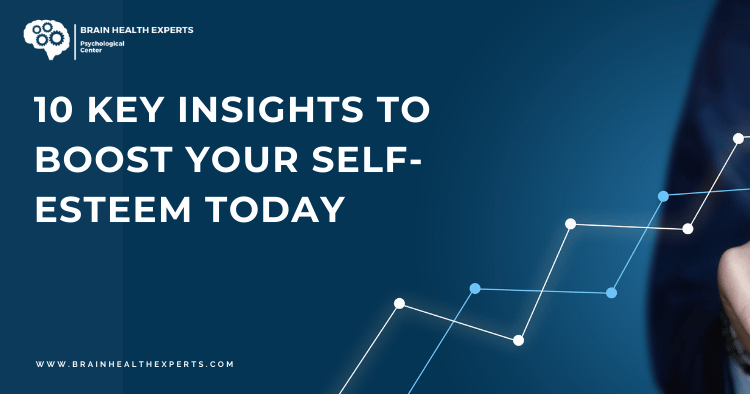Table of Contents
- What is Self-Esteem?
- The Importance of Self-Esteem
- Common Causes of Low Self-Esteem
- Recognizing Your Strengths
- Setting Realistic Goals
- Practicing Self-Compassion
- Surrounding Yourself with Positive People
- Challenging Negative Thoughts
- Developing New Skills
- Seeking Professional Help
What is Self-Esteem?
Self-esteem refers to how we perceive our worth and value. It significantly impacts our mental health, relationships, and overall happiness. High self-esteem is characterized by confidence and a positive self-image, while low self-esteem often leads to feelings of worthlessness and self-doubt. Understanding this concept is crucial as it lays the groundwork for our actions, thoughts, and motivation.
FAQ: Why is self-esteem important?
Self-esteem influences your decisions, relationships, and emotional well-being. When you feel good about yourself, you’re more likely to take risks, pursue goals, and maintain healthy relationships.
The Importance of Self-Esteem
High self-esteem acts as a protective barrier against negative experiences, enabling individuals to cope better with challenges and setbacks. People with healthy self-esteem tend to have stronger relationships, better academic performance, and a more fulfilling life. Conversely, low self-esteem can lead to mental health issues such as depression and anxiety.
Visual Element:
Benefits of High Self-Esteem Consequences of Low Self-Esteem Increased resilience Higher risk of mental health issues Improved relationships Difficulty in personal and professional life Greater motivation Chronic feelings of inadequacy
Common Causes of Low Self-Esteem
Many factors can contribute to low self-esteem, including:
- Negative childhood experiences: Criticism, bullying, or neglect can leave lasting impacts.
- Comparison to others: Social media can exacerbate feelings of inadequacy, as we often compare our insides to others’ outsides.
- Perfectionism: The constant pursuit of perfection can lead to disappointment and self-criticism.
- Cultural and societal pressures: Expectations based on gender, race, or socio-economic status can also play a role.
FAQ: Can self-esteem change over time?
Yes, self-esteem is not static; it can fluctuate based on experiences, relationships, and personal growth.
Recognizing Your Strengths
One of the most effective ways to boost your self-esteem is to identify and embrace your strengths. Make a list of your accomplishments, skills, and positive attributes. This practice fosters self-awareness and encourages a shift in focus from weaknesses to strengths.
Tips for Recognizing Strengths:
- Seek feedback: Ask friends or family what they think your strengths are.
- Reflect on past successes: Think about times when you felt proud of yourself.
- Take strengths assessments: Tools like the VIA Survey of Character Strengths can help you discover your unique strengths.
Setting Realistic Goals
Setting achievable goals can provide direction and a sense of purpose. Start small; break down larger goals into manageable tasks. Celebrating small victories can significantly boost your self-esteem.
SMART Goals Framework:
- Specific: Clearly define what you want to achieve.
- Measurable: Ensure you can track your progress.
- Achievable: Set realistic goals that challenge you but are attainable.
- Relevant: Align your goals with your values and interests.
- Time-bound: Set a deadline to create urgency.
FAQ: What if I fail to achieve my goals?
Failure is a part of growth. Instead of viewing it as a setback, treat it as a learning opportunity.
Practicing Self-Compassion
Self-compassion involves treating yourself with kindness during difficult times. Rather than being critical, recognize that everyone makes mistakes and experiences challenges. Acknowledge your feelings without judgment and offer yourself the same understanding you would give a friend.
Self-Compassion Exercises:
- Journaling: Write about your feelings and reflect on them.
- Mindfulness: Practice being present and non-judgmental about your thoughts and emotions.
FAQ: How can self-compassion improve self-esteem?
By fostering a kinder inner dialogue, you can reduce self-criticism and build a more positive self-image.
Surrounding Yourself with Positive People
The people you spend time with can significantly influence your self-esteem. Surround yourself with supportive, uplifting individuals who celebrate your successes and encourage your growth.
Tips for Building a Positive Circle:
- Engage in social activities: Join clubs or groups that align with your interests.
- Limit exposure to negativity: Distance yourself from toxic relationships that drain your energy.
FAQ: How do I identify toxic relationships?
Toxic relationships often leave you feeling drained, anxious, or unworthy. Trust your instincts and prioritize your well-being.
Challenging Negative Thoughts
Our thoughts can be our worst enemies. Learning to challenge and reframe negative thoughts is crucial for building self-esteem. When you catch yourself thinking negatively, pause and ask if that thought is based on facts or assumptions.
Techniques for Challenging Negative Thoughts:
- Cognitive restructuring: Replace negative thoughts with positive affirmations.
- Thought diary: Keep track of negative thoughts and their triggers, then work on reframing them.
FAQ: Is it normal to have negative thoughts?
Yes, everyone experiences negative thoughts. The key is to recognize and challenge them, rather than allowing them to define you.
Developing New Skills
Learning new skills can be empowering and help you feel more competent. Whether it’s a hobby, a new language, or a professional skill, the process of learning can significantly boost your confidence and self-esteem.
Ways to Develop Skills:
- Take classes: Online platforms like Coursera offer various courses to help you learn new skills.
- Practice regularly: Consistency is key to mastering any skill.
- Join a community: Engage with others who share your interest to foster motivation and accountability.
FAQ: What if I struggle to learn something new?
Learning takes time, and everyone progresses at their own pace. Be patient with yourself and celebrate small achievements.
Seeking Professional Help
If low self-esteem significantly impacts your life, seeking help from a mental health professional can be beneficial. Therapy can provide you with tools to understand the root causes of your self-esteem issues and develop healthier coping strategies.
Resources for Professional Help:
- Therapists: Look for licensed professionals in your area or consider online therapy platforms like BetterHelp.
- Support groups: Connecting with others who share similar experiences can provide encouragement and understanding.
FAQ: How do I find the right therapist?
Research potential therapists online, read reviews, and consider scheduling initial consultations to find someone you feel comfortable with.
In conclusion, boosting your self-esteem is a journey that requires time, patience, and effort. By implementing these ten insights into your daily life, you can foster a healthier self-image and lead a more fulfilling life. Remember, everyone deserves to feel good about themselves, and taking small steps can lead to significant changes. Start today!
Also Look For:
- 10 Powerful Affirmations Boost Mental Health Today
- 10 Tips to Overcome Negative Thought Patterns Today
- 10 Ways Positive Thinking Transforms Your Daily Life
- 10 Daily Habits to Boost Your Positive Mindset
- 10 Ways Positive Thinking Boosts Emotional Well-Being





